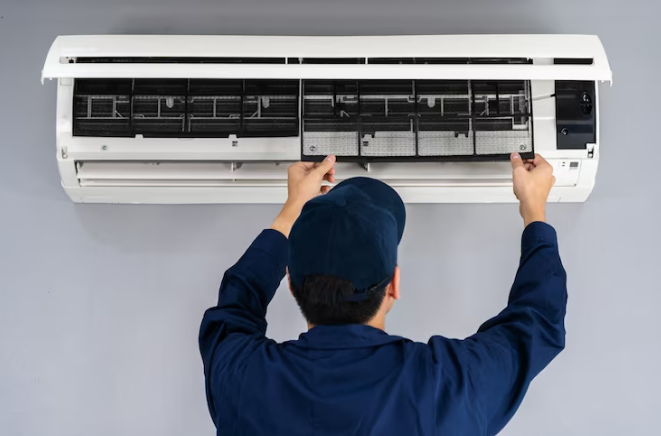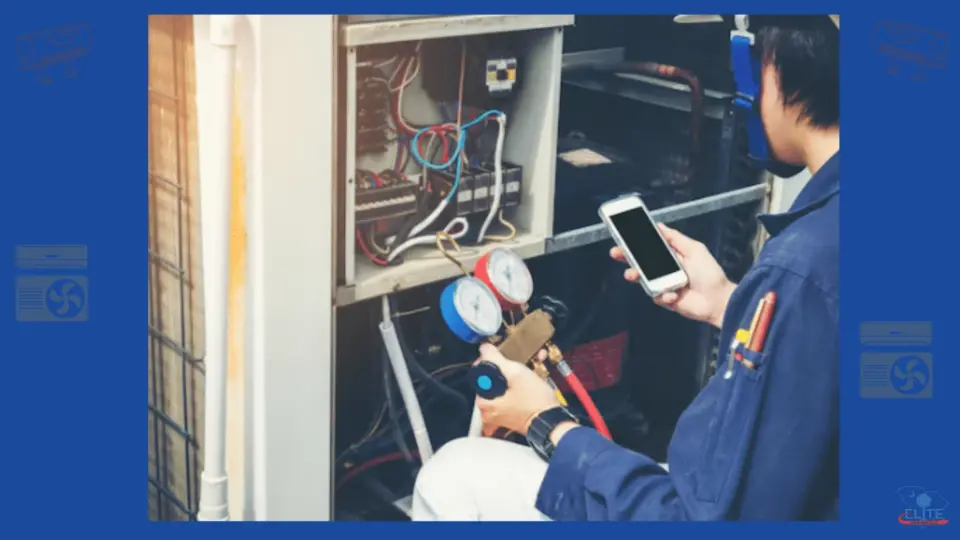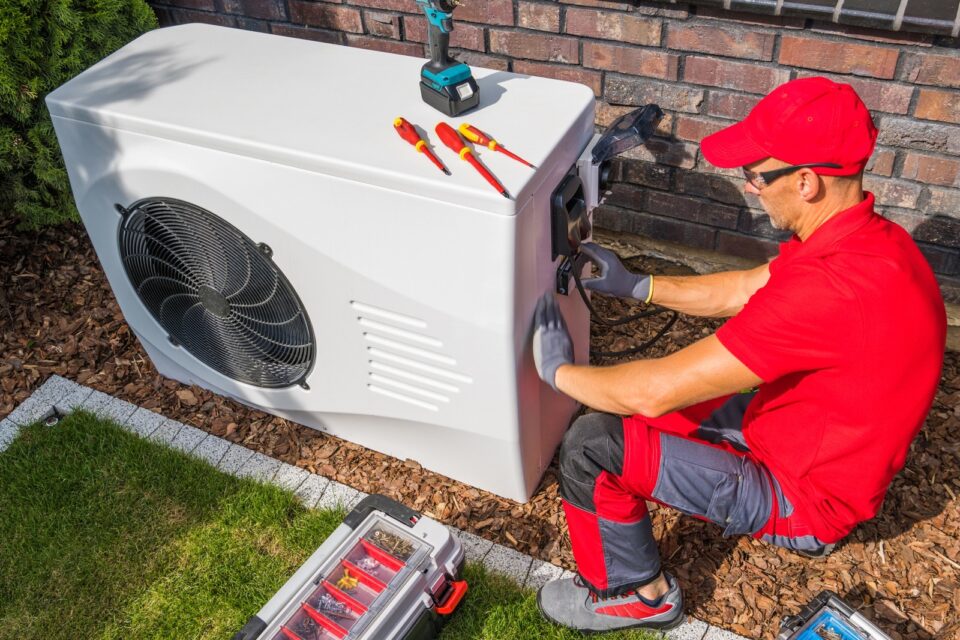Choosing the right AC installation service is crucial to ensure that you have a smooth and hassle-free experience. But with so many options out there, it can be a bit overwhelming. That’s why we’re here to help! In this guide, we’ll walk you through some of the key things to look for when selecting an AC installation service.
From qualifications and experience to reliability and customer reviews, we’ll cover it all. So sit back, relax, and let’s dive into the world of AC installation services together.
You can make an educated choice if you give these considerations the attention they need to ensure a successful AC installation and contribute to your cooling system’s long-term comfort and efficiency.
What to Look for When Installing AC
When installing an AC system, there are several factors to consider. Here are some key points to keep in mind:
- Size: Consider the AC unit size for the space you want to cool. An oversized unit may result in inefficiency and increased energy consumption, while an undersized team may need help to cool the area effectively.
- Air quality: Take into account the air quality of your surroundings. Consider additional filters or purification systems if you live in an area with high pollution or allergens.
- Ductwork: Ensure the existing ductwork is in good condition and properly sealed. Leaks and poor insulation can lead to energy loss and decreased efficiency.
- Certification and insurance: When hiring a professional installation service, check if they are certified and insured. This ensures a safe and high-quality job.
- Warranty policy: Inquire about the warranty policy offered by the installation service. It’s essential to understand the coverage and duration of the warranty for any potential future repairs or replacements.
- Cooling balance: Check the balance and effectiveness of cool air in each room of your home or space. Proper airflow distribution is crucial for optimal cooling performance.
- Cleanup and disposal: After completing the installation, ensure the installation team cleans up and disposes of any trash or debris generated during the process.
Remember, consulting with a professional HVAC technician or installation service is always recommended to ensure a successful and efficient AC installation.
Factors to Consider in the Choice of Air Conditioners
When choosing an air conditioner, you should examine numerous criteria to make the proper option for your needs. Here are some important factors to keep in mind:
- Cooling Capacity: Air conditioner cooling capability is measured in British Thermal Units (BTUs). Selecting an air conditioner with the appropriate BTU rating for the room size you want to cool is essential. A unit with too low a BTU rating may not effectively cool the space, while one with too high a rating will consume unnecessary energy.
- Energy Efficiency: Look for air conditioners with high energy efficiency ratings. Energy-efficient versions reduce electricity costs bills while reducing your carbon footprint. Look for ENERGY STAR-certified units as they meet strict energy efficiency guidelines.
- Noise Level: When installing an air conditioner in a bedroom or other room, consider its noise level living area. Some units operate quietly, while others can be quite noisy. Check product specifications or reviews to find a model that suits your preference for noise levels.
- Installation Requirements: Different air conditioners need different installations setups. Window units, for example, need proper window space, while split-system units require both an indoor and outdoor component. Consider the installation requirements and whether they align with your available space and preferences.
- Filter Type and Maintenance: Air conditioners have filters that help improve air quality by trapping dust, pollen, and other particles. Consider the type of filter used in the unit and how easy it is to maintain. Some models have washable filters, while others require replacement. Optimizing filter performance requires regular maintenance of air quality.
- Additional Features: Air conditioners often come with other features and functionalities. These may include programmable timers, remote control operation, sleep mode, dehumidifiers, or smart home compatibility. Assess which features are important to you and choose a model that meets your needs.
Remember to thoroughly research and read customer reviews before making a final decision. It’s also a good idea to consult with a professional if you have specific requirements or unique circumstances.
How to Know When AC Needs Servicing
Knowing when your air conditioner needs servicing is necessary to ensure the product’s optimum performance as well as its lifespan. Here are some signs that indicate your AC may need servicing:
- Air Blowing Warm: If instead of blowing cool air, your air conditioner is blowing heated air, it may need to be serviced could indicate a refrigerant leak or a faulty compressor.
- Thermostat Issues: An AC thermostat not working properly can result in inconsistent cooling or incorrect temperature readings.
- Insufficient Airflow: If you notice little air blowing out of the vents, it could indicate a clogged filter or ductwork issues.
- Unusual Noises: Loud or unusual noises from your AC unit may suggest loose parts, motor issues, or belt problems requiring attention.
- Increased Energy Costs: If you suddenly see a rise in your energy costs without making any other changes to the way you use energy, this could be an indication that your air conditioning system is not running as efficiently as it should be.
- High Humidity: Excessive humidity in your home, despite the AC running, can indicate an issue with your air conditioning system’s dehumidification capabilities.
- Frequent On/Off Cycling: If your AC frequently turns on and off, it could be due to a malfunctioning thermostat, improper refrigerant levels, or electrical issues.
- Unpleasant Odors: Foul odors from your AC vents are sometimes a sign of mold growth, mildew, or other contaminants within the system that must be addressed.
- Uneven Cooling: If you experience inconsistent temperature distribution throughout your home, it may indicate problems with ductwork, insulation, or the AC unit itself.
- Increased Energy Bills: A significant increase in your energy bills compared to previous months or similar periods could indicate an inefficient AC system that requires servicing.
Remember, your air conditioning system can have a longer lifespan with proper maintenance and servicing on a routine basis, which can help prevent significant problems. Seeking professional advice is highly recommended by an experienced HVAC specialist for a thorough inspection and servicing as needed.
Elite Air & Heat is the Right AC Installation Service Provider! Contact us now!
Choosing the right AC installation service, selecting the appropriate air conditioner, and knowing when your AC needs servicing are essential to maintaining a comfortable and efficient home environment. At Elite Air & Heat, LLC, we prioritize experience, transparency, and quality in our services to ensure your AC system operates at its best.
Contact us for expert guidance and assistance with your AC installation and servicing needs. Your comfort is our top priority.




